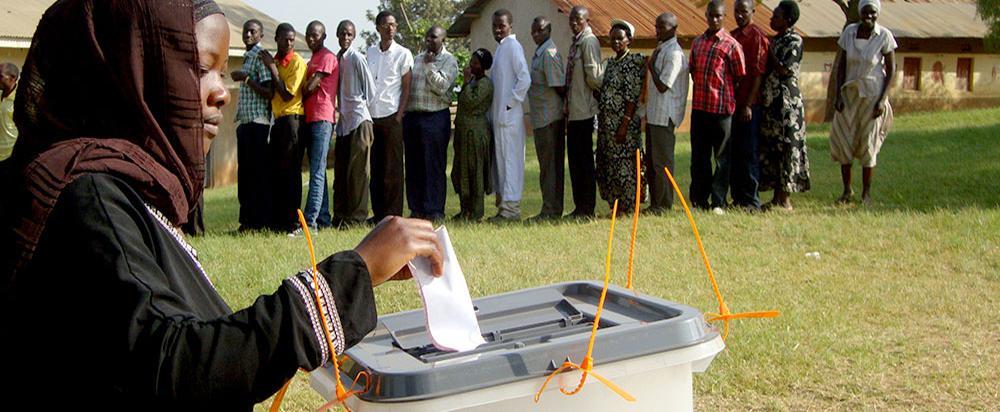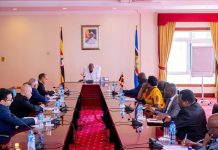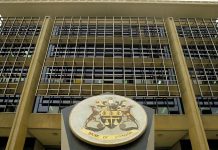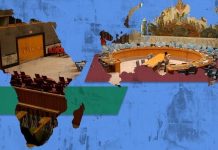Africa-Press – Uganda. In half a year or even less, a candidate running for a Member of Parliament seat in Uganda can spend between Shs250 million to Shs500 million in a desperate attempt to secure electoral victory by any means necessary, DM Money has established.
Our investigations also established that excessive spending in a frantic move to win a parliamentary seat by hook or crook, is not just the preserve of the biggest spender in the race, but all other candidates vying for the same slot are also prepared to counter by spending as much as they can.
The Alliance for Finance Monitoring (ACFIM), a political finance watchdog charged with monitoring money in politics in Uganda and Africa as a whole, corroborates DM’s investigations, stressing that unless radical reforms are undertaken, this ‘cancer’ can only get worse before it gets better.
The 2021 ACFIM report noted an increase in overall campaign spending compared to previous elections at the parliamentary level, ranging from Shs50 million ($13,889) for the lowest spender to over Shs3.5 billion for the highest spender. The report found that the majority of spending was in the form of cash donations dished out for reciprocity on the Election Day.
The report estimates that nearly Shs4 trillion, about a trillion shilling shy of the budget allocated to the health sector in the 2025/26 Budget, was spent by candidates trying to persuade people to vote for them in the 2021 elections.
As it has become the norm, each election cycle sees spending levels hit new records, and this time round, according to researchers and political finance watchdog analysis, the 2026 election will be no different, a position multiple candidates aspiring for elective positions and political analysts spoken to concur with.
In another analysis, titled: Elections are upon us: Uganda’s economy managers will have their plate full, Mr Smartson Ainomugisha, a research associate at Economic Policy Research Centre (EPRC), observes that there is increased expenditure as current legislators fight to keep their seats while newcomers fight to grab anything they can.
Unlike many other prudent ventures, it looks like “investment” in seeking an elective position in Uganda is driven by lavish spending coupled with the desire to win at all costs, regardless of whether it is fair or not.
In some regions of the country, such as Western Uganda, DM Money has established that a candidate looking to grab a parliamentary seat can spend up to Shs4 billion – an obscene amount of money – in a country where a large number of the population is struggling to meet basic needs.
According to the World Bank, at least 40 percent of the population lives on less than $2 per day, which is considered below the poverty line. Meanwhile, players running for elective positions are spending the kind of money that can establish hundreds, if not thousands of cottage industries, generating hundreds of thousands of jobs for the jobless youth who have since become a time bomb waiting to explode.
By focusing on low-capital business ideas like crafts, food processing, or even online services for the young people, which could require just about $1,000 (Shs3.6 million) as capital, can be a life-changing capital investment for the unemployed electorate instead of being sunk in electoral campaigns, whose reward, among other things, is inflation.
Commercialisation of politics
Over the past two decades and counting, there has been increasing reliance on financial resources in the political processes and arena, often resulting in a situation where political power is influenced by wealth and monetary contributions. This phenomenon in Uganda manifests itself through lavish spending during electoral periods, leading to the high cost of campaigns, and the use of marketing techniques and principles to persuade, short- change, or bribe voters.
Lavish spending in politics can be traced back to when the multi-party political system was re-introduced in 2006. It is at this time that researchers such as Mr Ainomugisha believe Ugandan politics started becoming increasingly monetised.
Two decades down the road, it is now a norm for politicians to use voter bribery through money and material goods such as soap and salt as a tool to win support. He further noted that the appetite to receive bribes among voters is alarming because it is seen as the only benefit they can realistically gain from politicians.
“Election period is an opportunity to make money from politicians,” says the research associate, Mr Ainomugisha.
According to Mr Charles Mangali, an aspiring Member of Parliament for Budadiri West constituency, Sironko District, commercialisation of politics is not only standing in the way of genuine and honest political servants, but it is also making it almost impossible for new kids on the political block like himself, to sell their fresh ideas to the electorate.
“Our people have been forced to believe that only those with money or the rich should assume a position of leadership. This is why you see candidates outspending each other to prove a point,” Mr Mangali, a sales strategist by profession,” says in an interview last week.
He continues: “I have seen money injected during electoral processes unimaginably. It is common for people contesting for MP seats to mortgage their properties or borrow heavily in an attempt to win a seat – none of these are new, and the result is always disastrous.
“This is why my campaign will be on issues and what is expected of an MP and nothing else,” Mr Mangali says.
When asked about his source of campaign, which he estimated in the range of between Shs100 million and Shs150 million, most of which is from contributions from supporters and those who believe in his cause, which he says will be spent strictly on electoral materials and related requirements to legally facilitate his campaign for the Budadiri West parliamentary seat.
Compared to what the majority of aspiring candidates are injecting, Mr Mangali estimates at best is laughable. With barely half a year left before the election, it remains to be seen how far his plans to stick to addressing issues that people are concerned with throughout the campaign period will see him through – we hope it does for all those issue-based candidates.
Then there is the 30-year-old Stephen Okello, a teacher by profession, looking to become Toroma constituency MP. Like Mr Mangali, Mr Okello believes commercialisation of politics has reached a fever pitch.
“Excessive spending in our politics has gotten worse. It is no longer about offering proper leadership and services, but how much money you can spend to secure a political position,” Mr Okello says.
This, he said, “is contrary to my conviction. As a young person, I am looking to restore the lost honour in our elective position.”
His finances will largely be from well-wishers who he describes as grassroots support looking for fresh ideas and genuine brand of leadership – doing what an MP is supposed to do – lobby, monitor and appropriate resources instead of showing off through lavish spending.
Commercialisation
Dr Bireete Sarah, the founding partner and executive director for the Center for Constitutional Governance (CCG), a constitutional watchdog, said commercialisation of politics in Uganda has reached excess levels, saying: “We need to curb it urgently and deliberately de-commercialise it.”
Dr Bireete listed what she describes as ideal steps to follow. To begin with, she would want to see a reduction in the size of parliament, suggesting two MPs – male and female per district.
The second step is to cut the size of MPs to be equal to that of Judges. The High Court currently has 151 judges, following an increase approved by Parliament in 2023.
Third, enact laws that put a cap on the amount of money that can be used while campaigning for different levels of elective seats. Finally, the promotion of the rule of law in the country must be paramount.
As for Tororo Member of Parliament, Ms Sarah Opendi, it is about time that reforms ending this practice are brought by the executive to Parliament to fix this problem.
She says: “We need serious reflections to end the commercialisation of politics. We are heading into elections without any electoral reforms.
“The commercialisation of politics is dangerous for a country like Uganda, which is doing poorly in tackling corruption. The Corruption Perception Index ranks Uganda at 140 out of 180 countries.
“We risk electing the highest bidders as opposed to good legislators who truly want to serve their country. I hope the executive can still bring amendments before the elections.”
Source: Monitor
For More News And Analysis About Uganda Follow Africa-Press






